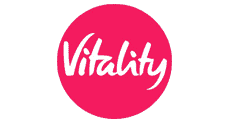Best Self-Employed Health Insurance
Home > Best Self-Employed Health Insurance
Get 1 month FREE on every Health Insurance policy
Health Insurance for self-employed individuals in UK
Self-employed health insurance in the UK covers health-related expenses for self-employed individuals, including outpatient, diagnostic, and dental care. It often allows policyholders to choose their preferred hospital and access a wider range of treatments and specialists. Most UK insurers offer this type of insurance, with different plans and benefits. Private medical insurance also allows policyholders to bypass NHS waiting lists and receive treatment more quickly.
Get Tailored Health Insurance Quotes from Top UK Insurers
How it works
Step 1. Answer a few simple questions
Step 2. Get tailored quote
Step 3. Get covered and start saving
Why Choose Us
We offer free and no obligation advice on medical insurance for the self-employed in the UK. Our experienced advisors will take the stress away from you and do all the hard work to find you the best provider by comparing quotes with the leading providers in the market. We have worked directly with AXA, Aviva, Bupa, and Vitality for over 40 years and have been tailor-making the best policies for our customers.
Professional Health Insurance Broker
Get expert advice from our dedicated health insurance advisors for free.
24/7 Customer Care
You can contact us anytime, and one of our health insurance consultants will always be available to answer your questions.
Claims Support
We will be there for you throughout the claims process to ensure that it is easy and stress-free.
Why is health insurance necessary for the self-employed?
Health Insurance for self-employed individuals in the UK is necessary for several reasons.
Firstly, NHS waiting times have exceeded 5 million, which means that those who rely on NHS services may face long delays in receiving private medical treatment. In contrast, this policy can provide faster access to private treatment and consultations with specialists.
Secondly, health insurance is not as expensive as many people think. With a basic plan, you can get coverage for outpatient care, diagnostic tests, and consultations with specialists.
Lastly, health insurance can provide financial security in the event of an illness. It can cover the cost of medical treatment, medications, and private hospital stays, ensuring that you can get the care they need private hospital stays, ensuring that you can get the care they need without worrying about the financial burden.
Overall, private medical insurance is an important investment for self-employed individuals in the UK to protect their health and finances.
Do you need income protection insurance?
Income protection insurance in the UK can provide financial support in case of illness or injury that prevents you from working. Critical illness insurance can provide a lump sum payment if you are diagnosed with a specified serious illness, and accident protection insurance can cover medical expenses and other costs related to an accident.
Who can benefit from self-employed health insurance?
Self-employed individuals in the UK who want faster access to medical treatment, a wider range of options, and financial protection in case of illness or injury.
- Freelancers
- Consultants
- Small business owners
- Entrepreneurs
- Sole traders
- Contractors
- Gig economy workers.
Benefits of Health Insurance for Self-Employed Individuals
Self-employed health insurance in the UK can provide access to private medical treatment and services, financial protection in case of illness or injury, and greater flexibility and control over healthcare decisions as an own boss. Health insurance can offer several benefits for you, including:
Health Insurance Benefits
Reduced Waiting Time
Faster access to medical treatment than relying solely on the NHS and skip waiting times
Choice
The ability to choose the consultant or specialist who will treat you.
Control
More control over your healthcare decisions as a policyholder.
Private Room
Get treated in private hospitals with your own private room, en-suit facilities, a-la carte menus and free parking.
Recovery and aftercare
Get quick access to treatments such as physiotherapy and mental health for a speedy recovery.
Protection
Financial protection against unexpected healthcare costs that can arise from illness or injury.
What is covered by health insurance for self-employed?
Private health insurance plans for the self-employed individual typically cover the treatment cost for acute conditions that require immediate medical attention. A comprehensive policy may also cover the cost of outpatient consultations, diagnostic tests, and overnight hospital stays. However, health insurance policies often do not cover chronic conditions. Insurance providers may also take into account an individual’s medical history when determining coverage under your business insurance. It’s important to review the details of any policy carefully to understand what is and isn’t covered.
What will be excluded from my policy?
When purchasing a private medical insurance policy, it’s important to be aware of what may be excluded from your coverage. Some things that may be excluded from your policy include:
- Pre-existing conditions that you had before purchasing the policy
- Chronic conditions that require long-term treatment and management
- Pregnancy and childbirth, unless you opt for a specific maternity coverage
- Cosmetic treatments or elective procedures
- Emergency treatment
- Experimental treatments or treatments that are not proven to be effective
- Injuries or illnesses that result from illegal or dangerous activities
It’s also important to note that even with health insurance, you can still use the NHS for certain treatments and services. However, it can provide faster access to treatment and more control over your healthcare decisions. Make sure to review your policy carefully to understand what is and isn’t covered.
Is pre-existing medical condition covered?
Pre-existing conditions may or may not be covered under your policy if you are self-employed. It depends on the type of underwriting used by the insurance provider, which can include:
- Full medical underwriting: This involves a thorough medical history check, and pre-existing conditions will likely be excluded from coverage.
- Moratorium underwriting: Pre-existing conditions are excluded for a set period, usually 2 years, after which they may be covered if you remain symptom-free.
- Continued personal medical exclusions: This involves exclusions based on your medical history, but only for conditions that existed before the start of the policy.
It’s important to disclose any pre-existing conditions when applying for cover, as failure to do so may result in an exclusion or denial of a claim. If pre-existing conditions are excluded, you may still be able to receive treatment through the NHS.

Our expert says…
“If you are self-employed, getting health insurance can be crucial for protecting yourself and your family. With current NHS waiting times, having private health insurance can help ensure that you receive the care you need quickly and recover as soon as possible. It’s always a good idea to shop around and compare the best health insurance deals to find a plan that suits your needs and budget. Investing in health insurance can provide peace of mind and help protect your health in the long run.”
– Stuart Hendy, PMI expert
What types of policies are available?
Health insurance for many self-employed people in the UK can choose from a range of health insurance policies that vary in their level of coverage and cost. The types of policies available include:
Basic Policy
These typically cover inpatient hospital treatment, surgery, and specialist consultations. They may also cover cancer treatment and therapies such as physiotherapy and chiropractic
Mid-range policies
These provide more comprehensive coverage, including outpatient care and diagnostics, mental health support, and alternative therapies like acupuncture and homoeopathy.
Comprehensive policies
These offer the highest level of coverage and may include dental and vision care, support for mental health conditions and additional therapies like osteopathy and hypnotherapy.
Self-employed people may also consider a cash plan, which provides cash back for everyday healthcare costs like dental checkups, eye exams, and physiotherapy. Another option is a serious illness policy, which pays out a lump sum if you are diagnosed with a serious illness like cancer, heart attack, or stroke.
How much does self-employed health insurance cost?
The cost of self-employed health insurance in the UK can vary widely depending on a range of factors, including:
- Age: Younger individuals typically pay lower premiums than older individuals.
- Lifestyle: Health and lifestyle habits, such as smoking and alcohol consumption, can impact the cost of insurance.
- Medical history: Pre-existing conditions can increase premiums or result in exclusions.
- Postcode: The cost of insurance can vary by region due to differences in healthcare costs and provider networks.
On average, self-employed health insurance premiums can range from £30 to £250 per month, depending on the level of coverage and the individual’s circumstances. To get an accurate quote, it’s important to compare policies from multiple providers and to provide accurate information about your health and lifestyle habits.
These Prices Are Based On A HealthyNon-Smoking 35 Years Old Self-Employed Individual
| Insurer | Insurer |
|---|---|
| Aviva Health | £39 |
| AXA Health | £41 |
| Bupa Health | £45 |
| The Exeter | £39 |
| Freedom Health | £40 |
| Vitality Health | £35 |
How to reduce the cost of your self-employed health insurance?
Reducing the cost of your self-employed health insurance can help make it more affordable. Here are some ways to do that:
Go for a higher excess
One way to reduce the cost of your self-employed health insurance is to add an excess. An excess is the amount of money you agree to pay towards a claim. By increasing your excess, you can lower your monthly premium. However, it’s important to make sure you can afford to pay the excess if you need to make a claim.
Reduce your hospital list
Another way to reduce the cost of your self-employed private health insurance is to choose a policy that only covers treatment in a limited number of hospitals. By doing this, you can often lower your premiums. However, it’s important to make sure the hospitals on the list are convenient for you and offer the services you may need.
Add a six-week option
Adding a six-week option to your self-employed health insurance policy can also help to reduce your premiums. This means that you will only be covered for treatment if the NHS wait time for that treatment is longer than six weeks. By opting for this, you can lower your monthly premium. However, it’s important to note that you may have to wait longer for non-urgent treatment.
Other ways to reduce cost
There are several other ways to reduce the cost of your health cover as a self-employed individual in the UK. Here are some options:
- Choose a basic plan: Basic plans typically cover only the essentials, such as inpatient treatment, and are often more affordable.
- Shop around: Get quotes from different providers and compare their prices and policy details.
- Increase your policy excess: Agreeing to pay a higher excess if you make a claim can help to lower your premiums.
- Pay annually: Many providers offer discounts if you pay for your policy annually instead of monthly.
- Consider a health cash plan: A health cash plan offers cashback on everyday health expenses like dental check-ups and optician appointments.
- Improve your health: Some private health insurance providers offer discounted rates to policyholders who lead a healthy lifestyle, such as non-smokers or those with a healthy BMI.
When selecting a private health insurance policy, it’s important to consider your healthcare needs and budget and to carefully review the policy details to ensure it meets your requirements. Also, if you want to buy medical insurance for employees, you can seek advice from our health insurance professionals, who will guide you through the process.
Get A Quote
Self-employed Health Insurance FAQs
Other types of health insurance policies

Have any questions?
Send us a message and one of our dedicated advisors will contact you shortly.










